Contoura Vision or Topo-guided Contour Treatment, is the latest technology in laser specs removal to correct all the irregularities on the cornea. This gives you much better vision results than only LASIK. So, if you are finding the best method to get freedom from your glasses then it would be the most suitable, safe and affordable option for you.
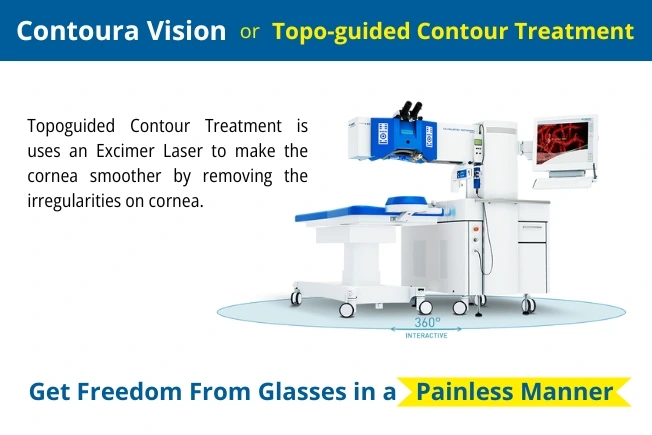
Contoura Vision Surgery is add-on step during removing the number by reshaping the cornea. This procedure uses an Excimer Laser to make the cornea smoother by removing the irregularities on cornea. Topo-guided can be added in all types of LASIK:
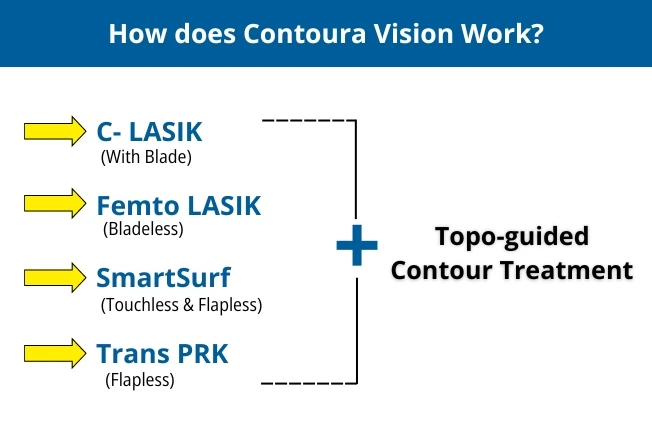
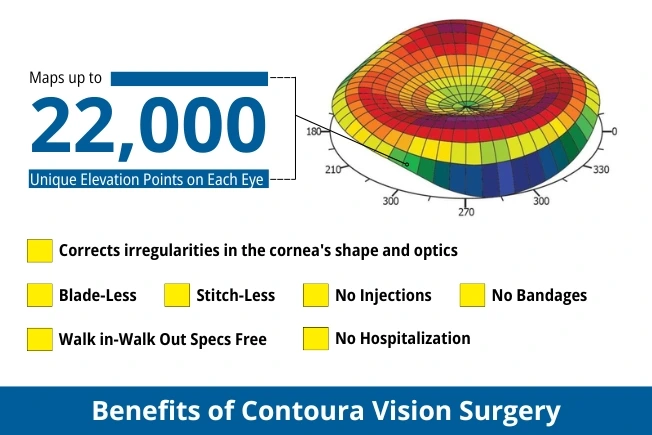
This procedure is suitable for:
1. Individuals with stable vision i.e. no significant change in prescription for at least a year.
2. People with nearsightedness (myopia) or astigmatism.
3. Patients seeking enhanced quality vision beyond standard LASIK results.
4. Adults aged 18 and older with healthy corneas.
5. Those free from eye diseases such as cataracts or glaucoma.
6. Female patients who are not pregnant and lactating.
Always consult with an eye doctor to determine if you're a good candidate.
| Aspect | LASIK | Contoura Vision / Topoguided Contour |
|---|---|---|
| Purpose | Corrects short-sightedness, long-sightedness, and astigmatism. | Corrects short-sightedness, long-sightedness, and astigmatism. |
| Visual Outcome | Standard visual acuity improvement. | Better visual acuity and refractive outcomes. |
| Technology | Traditional laser surgery. | Computer-guided topographic mapping of the cornea along with traditional LASIK. |
| Procedure Focus | Centered on the pupil. | Centered on the visual axis of the eye. |
| Corneal Mapping | Maps 20 points on cornea. | Maps at least 22,000 points of the cornea for a customized treatment. |
| Treatment Customization | Generalized treatment. | Individualized treatment plan for each patient. |
| Smoothing of Corneal Irregularities | Limited. | Smoother corneal surface, leading to clearer vision. |
| Glare and Halos | Some patients may experience glare and halos. | Significantly fewer problems with glare and halos. |
| Night Driving | Possible difficulties. | Improved night driving with fewer complaints. |
| Healing Time | Standard recovery time. | Faster healing with less tissue damage. |
| Visual Acuity Achievement | 6/6 vision standard. | 6/6 with good quality of Vision. |
Save Sight Centre offers advanced Topoguided Contoura Treatment by German Technology, designed to improve vision by correcting irregularities in the cornea. Our experienced team has taken care of more than 2,40,000+ patients uses the latest technology to provide personalized care, ensuring precise results and a faster recovery. Choose Save Sight Centre for latest treatment and a commitment to your eye health.
Dr. Rajeev Jain , Dr. Shuchi Gupta, and Dr. Ankit Malhotra are pioneer in refractive procedures in Delhi, with over 13 years of experience in the field of glass removal surgery. We have successfully treated more than 1,40,000+ patients, providing them with clearer and sharper vision.
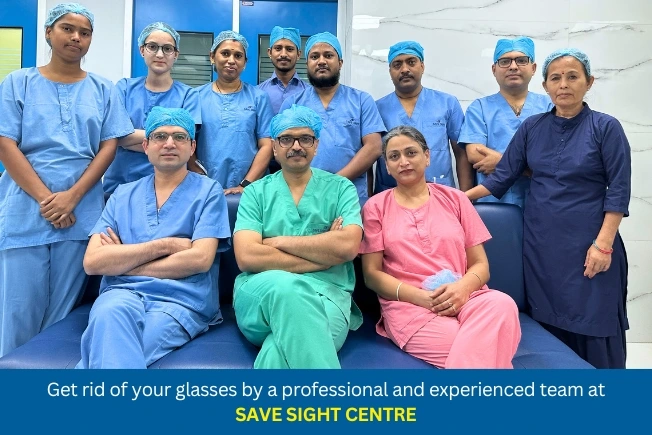
We use the latest equipment Schwind Amaris 500S and cutting-edge technology to ensure precise and customized vision correction. The surgery is performed at a NABH-accredited facility, ensuring the highest standards of safety and quality in eye care.
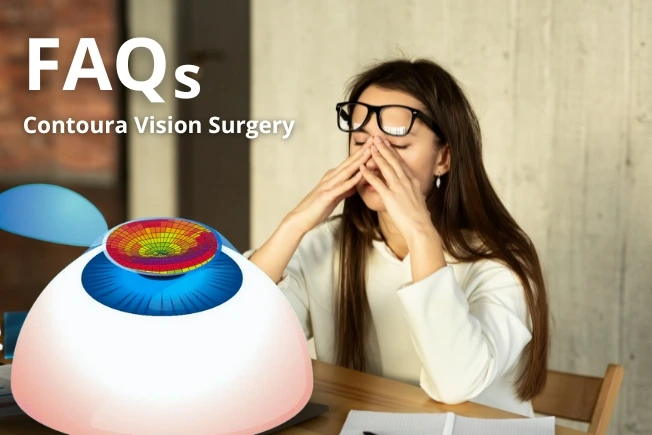
Ans: Yes, Contoura / Topoguided Contour Vision offers better precision by treating corneal irregularities and focusing on the visual axis, leading to improved vision quality.
Ans: It is more expensive than LASIK, and not everyone is eligible for the procedure.
Ans: The cost varies but is generally higher than standard LASIK.
Ans: The ideal age range is between 18 and 50 years old.
Ans: No, the procedure is not painful as it is done under local anesthesia.
Copyright © 2025 | Save Sight Centre | All Rights Reserved.